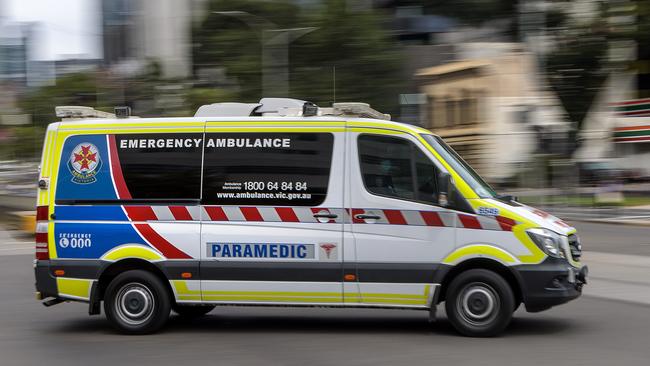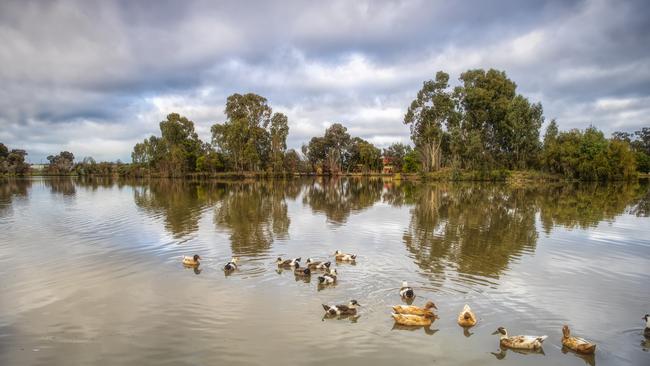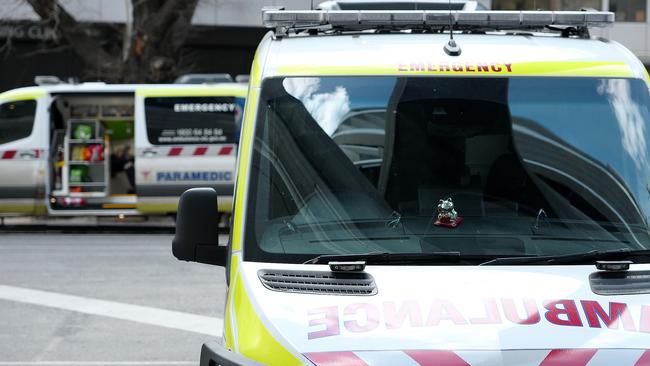VCAT: Ambulance Victoria paramedic Rick Clark withheld CPR on woman at Maryborough and committed professional misconduct
A woman’s heart was still beating when a remorseless paramedic withheld CPR, wrongly pronounced her dead, and later made false statements about the provision of care.

Ballarat
Don't miss out on the headlines from Ballarat. Followed categories will be added to My News.
A remorseless paramedic who pronounced a 70-year-old woman dead while her heart was still beating may have deprived her of a chance of survival, a tribunal has found.
Rick Clark was among four paramedics called to Lake Victoria in Maryborough in 2020 to treat an elderly woman who had collapsed on a bench.
She was conscious and responsive but started making “incomprehensible sounds”, and later died.
An internal Ambulance Victoria investigation into the woman’s death found Mr Clark was wrong to tell his colleagues to not resuscitate the woman after forming the view she was “flat-lining”.
According to documents filed at the Victorian Civil and Administrative Tribunal, Mr Clark’s colleagues told him “it feels awful” to not attempt resuscitation, only for him to reply: “Look, I don’t think it’s really worth starting.”
Despite one of his colleagues saying “it does not feel right” to give up on the woman, investigators found Mr Clark told a clinician at Ambulance Victoria there was a “consensus” to not attempt resuscitation.

“ … the consensus was to call it because we’re not going to start CPR,” Mr Clark said.
Mr Clark then told a radio dispatcher to cancel other crews that had been called out to help.
“ … we’re not going to attempt this … so I think we can just cancel everyone else,” he said.
Mr Clarke said other reasons he did not try to resuscitate the woman included the woman being overweight and there being pird poo on the muddy ground nearby.
The Tribunal heard Mr Clark told investigators “if he were confronted with the same patient again, he would make the same decision”.
Lawyers for the Paramedicine Board of Australia — the professional regulator for paramedics — said Mr Clark had a “lack of insight and remorse” for his conduct.

They told the Tribunal Mr Clark withheld resuscitation “knowing that doing so would lead to (the woman’s) death, and in circumstances where he could have attempted resuscitation”.
Mr Clark’s lawyers, in a letter to the Tribunal, said the other paramedics on the scene that day were partly to blame for the tragedy.
“(Mr Clark) accepts that there is clear evidence to establish that aspects of the patient’s management should have been done differently,” the letter said.
They said he now “accepts his role in the outcome.”
Ambulance Victoria suspended Mr Clark’s employment after the woman’s death, and he handed in his paramedic registration in late 2020.
The Tribunal found Mr Clark “would still pose an unacceptable risk to the public if he sought to return as a paramedic”, and disqualified him from being registered as a paramedic for five years.
He is also banned from providing any health service — including providing first aid — to anyone, until 2028.
According to court documents, Clark now works in an unrelated field.
The Victorian Coroner did not hold an inquest into the woman’s death.




